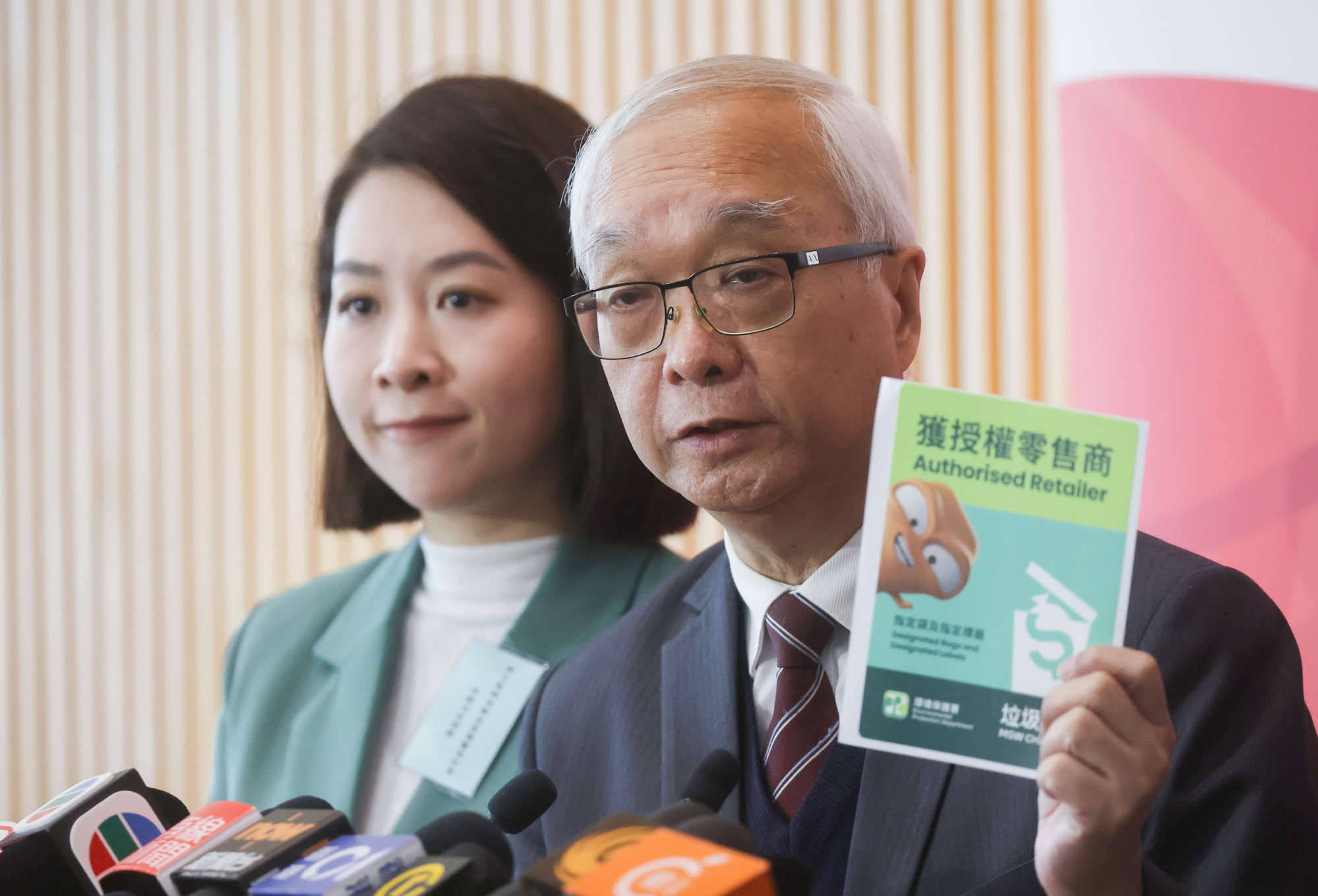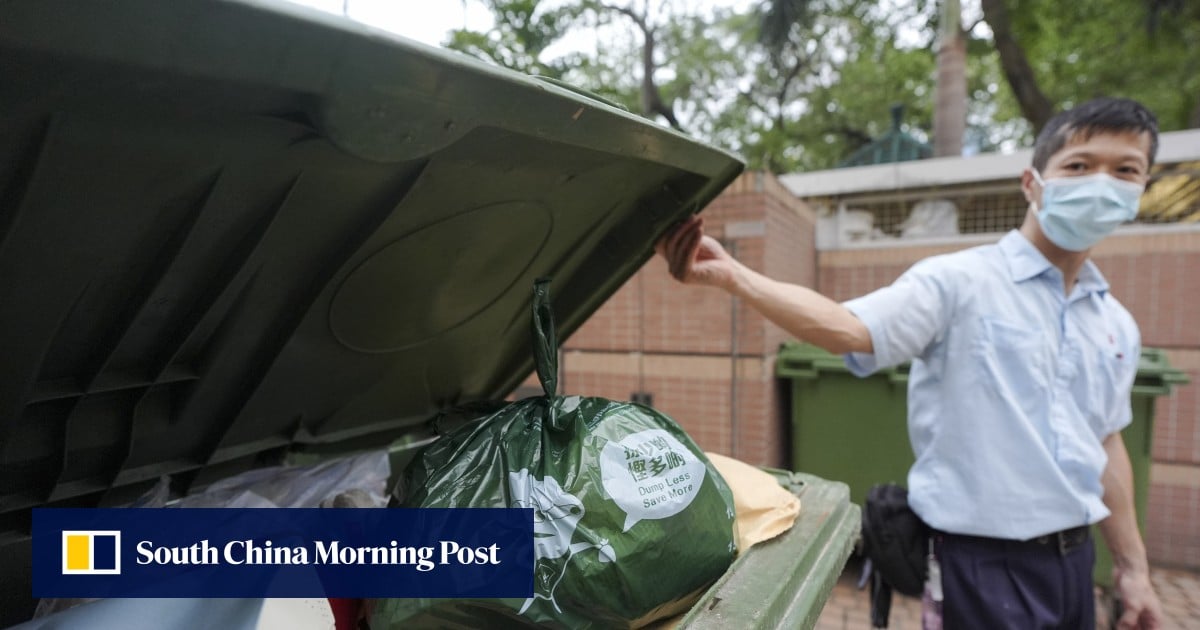Authorities also ordered a trial run involving 14 premises to identify weak spots in how residents will deal with the waste-charging scheme.
Two insiders familiar with the discussion said top advisers in the government’s key decision-making body, the Executive Council, had warned Chief Executive John Lee Ka-chiu and other officials about the problems of pushing forward the scheme over the past months, even though the item was not officially on the agenda.
“This is affecting the whole of Hong Kong, especially the low-income groups,” a source said. “The current administration under Lee has just built his reputation and this scheme will dampen it if it’s launched without thorough planning.”

The city leader just ticked off a major item on Beijing’s checklist by enacting the domestic national security law, mandated under the city’s mini-constitution, in March.
The waste-charging scheme could pose a challenge to the governance of Lee, who would mark his third year in the office on July 1, the person noted.
The source added that it was not until recently that government officials clearly conveyed to Exco members and lawmakers the problems of the scheme, saying it would definitely require more time to overcome hurdles.
“Many of the advisers have the impression that it’s a 99 per cent chance there will not be a full launch by August,” the source said.
Secretary for Environment and Ecology Tse Chin-wan conceded on Thursday that authorities had encountered many issues during the trial run, pledging a “careful review” to minimise public inconvenience.
“We have indeed seen many issues in the trial. Many people have found it too complicated. Most importantly, we see extra work added to frontline sanitation and management staff,” he said.
“What we should do is to make [the scheme] acceptable to everyone and make it less disturbing to the public.”
He added the trial would go on for one more month.
Many ‘problems’ revealed in Hong Kong waste-charging scheme trial run: official
Many ‘problems’ revealed in Hong Kong waste-charging scheme trial run: official
The minister’s remarks were in line with those of Deputy Chief Secretary Warner Cheuk Wing-hing, who leads an interdepartmental task force on the charging scheme.
Cheuk became the first official to admit a number of “problems” in the trial run a day ago and stressed that a full roll-out of the scheme in August would require public consensus.
A second source told the Post that the recent speeches by Cheuk and Tse served as a prelude to the postponement.
“That’s why the officials kept saying there were many problems in the trial scheme and they do not want residents to be affected,” the insider said.
The government was highly likely to announce the postponement later this month at a joint panel meeting on May 27 at the legislature when Tse was due to report to lawmakers about the ongoing trial’s results, he added.
The two sources said the government could postpone the plan for months, if not years, in the name of the low participation rate in the trial, more time for preparing for the relevant facilities and public education.
A separate government source also said it was “highly likely” that there would not be a full launch by August.
Hong Kong confirms halt on production of bags for waste-charging scheme
Hong Kong confirms halt on production of bags for waste-charging scheme
The insider said unlike the two-phase single-use plastic ban that kick-started on April 22, which most residents do not have to bear any extra costs and punishments, the waste-charging scheme would trigger additional living expenses for the entire population.
Asked if the government could postpone the scheme that was already passed by the legislature as a law, the source said the legislation did not include a time frame and allowed the administration to implement it in a gradual manner.
Environmental groups called the likely postponement a disappointment, as the scheme had stayed afloat for almost 20 years.
Edwin Lau Che-feng, founder and executive director of The Green Earth, said the government was now facing a “conundrum” where authorities could lose credibility whether it postponed the scheme or went ahead in August.
“It is as if authorities are treating environmental policies not as seriously as others,” he said. “The government needs to make the same level of effort to let society know about waste charging and act upon the law.”
Veteran political commentator Sonny Lo Shiu-hing said the scheme had “several key components that were not well thought out at the early beginning” and that postponing it was not surprising.
He added that authorities could increase public confidence by revising the scheme after the trial run, such as adopting a water-downed version.

